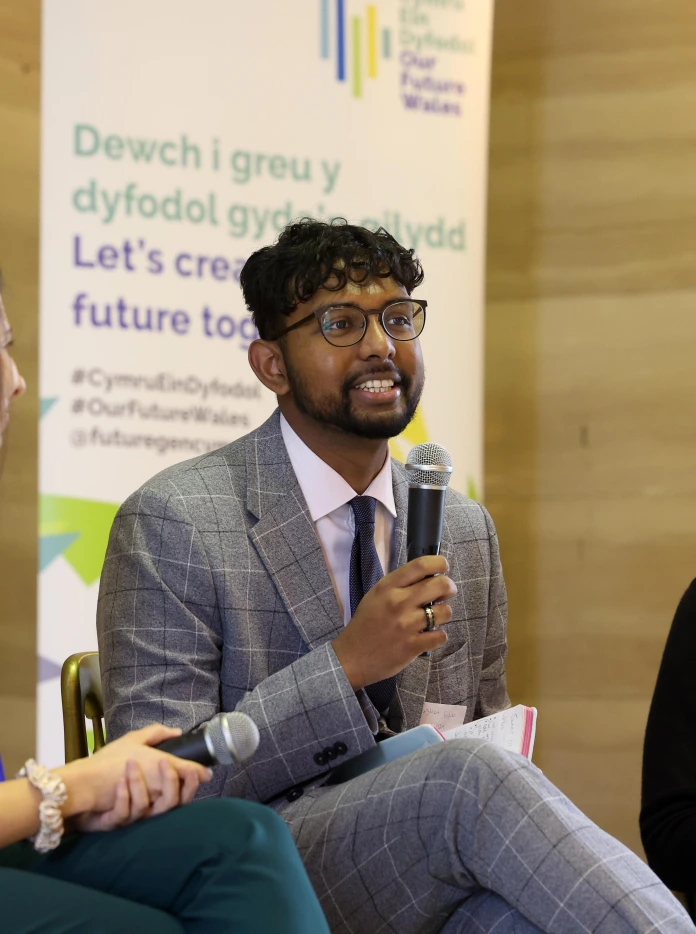In 2015, the Senedd (the Welsh Parliament) passed The Well-being of Future Generations (Wales) Act, becoming the first country in the world to legislate for those born tomorrow as well as those alive today. The Act requires the public sector to make joined-up, long-term decisions, so that those in Wales live better lives and leave a livable planet behind.
Centered around seven wellbeing goals, it is designed to join them together to ensure that Wales is working towards the same purpose. These focus on making Wales healthier, more prosperous, more resilient, more equal, with cohesive communities, a vibrant culture and a thriving Welsh language, all while being globally responsible.
Now, a decade on, Japan is following suit as it drafts its own Future Generations Law and is legislating for a cross-party standing Future Generations Committee in the Kokkai or Diet, its house of parliament.
So how has the Act benefited Wales? And what will it mean for Japan?
The Future Generations Act is a piece of legislation that is designed to make Wales a better place to live for future generations. For the first time in the world, this innovative law sets the needs of the future generations at the centre of every decision. It aims to address the long-term challenges Wales faces, such as climate change, inequality, and social well-being, by embedding sustainable development into decision-making processes.
Since it was introduced, several initiatives have been developed to make a tangible difference to people in Wales. These include a commitment to achieving net zero carbon emissions by 2050 and a green deal focused on green jobs, sustainable infrastructure and tackling inequality while addressing climate change.
Subsequent policies are directly influenced by the Act’s long-term approach to tackling climate change, ensuring economic decisions are made with long-term environmental impacts in mind.
Helping millions
The idea is that the Act will help millions of people and their families for centuries to come. These include a number of Japanese nationals who have set up base in Wales like Jun Kato, originally from Tokyo, who came to Wales in 2005 to study computational mechanics at Swansea University and has worked in a scientific role in the country ever since.
He said: “It’s fantastic that Wales is leading the way in this area. I feel changes around us occur at a much higher pace compared with my childhood. Therefore, it is essential to consider the next generation for any aspects.”

A role model for other nations
In Japan, Wales’ Well-being of Future Generations Act took centre stage at the Eco Pro Exhibition event in Tokyo on the 4th December 2024, as former Welsh environment minister Jane Davidson talked through the legislation, what it means for Wales, and how other countries around the world can learn from it.
In fact, the Act is already having an impact around the world, with the General Assembly of the United Nations having this year announced that it will establish an Envoy for Future Generations – a concept inspired by Wales’ model. Now Japan is on the same journey, exploring similar legislation, with ambitious goals to design a sustainable society for future lives.
Organised by NIKKEI, the event, which was focused on sustainable development goals included a presentation to share Wales’ experience of developing its Future Generations Act and the positive impact of the well-being goals. This was followed by a panel discussion made up of senior members from the UN in Japan, the Japanese Ministry of Foreign Affairs and the Cabinet office.
A common vision
Wales’ Well-being of Future Generations Act demonstrates how small nations can lead the way in tackling the world’s biggest challenges.
Wales and Japan share a common vision and face a shared opportunity to collaborate on innovative tech, environmental solutions and community building initiatives that will make the world safer, fairer and more sustainable for generations to come.
By prioritising what matters most: our communities, our environment and the future we build together, we can achieve sustainable change.




